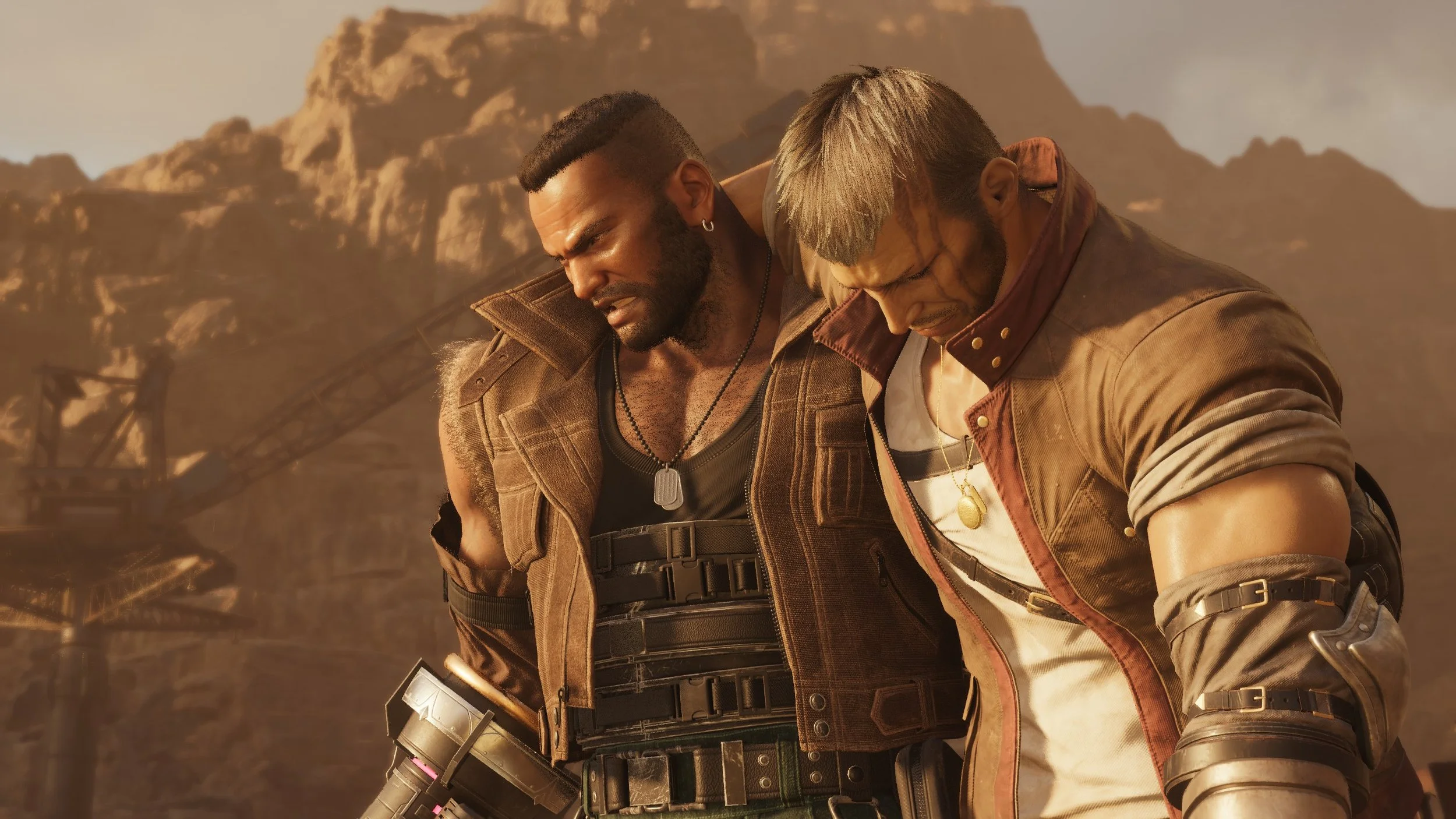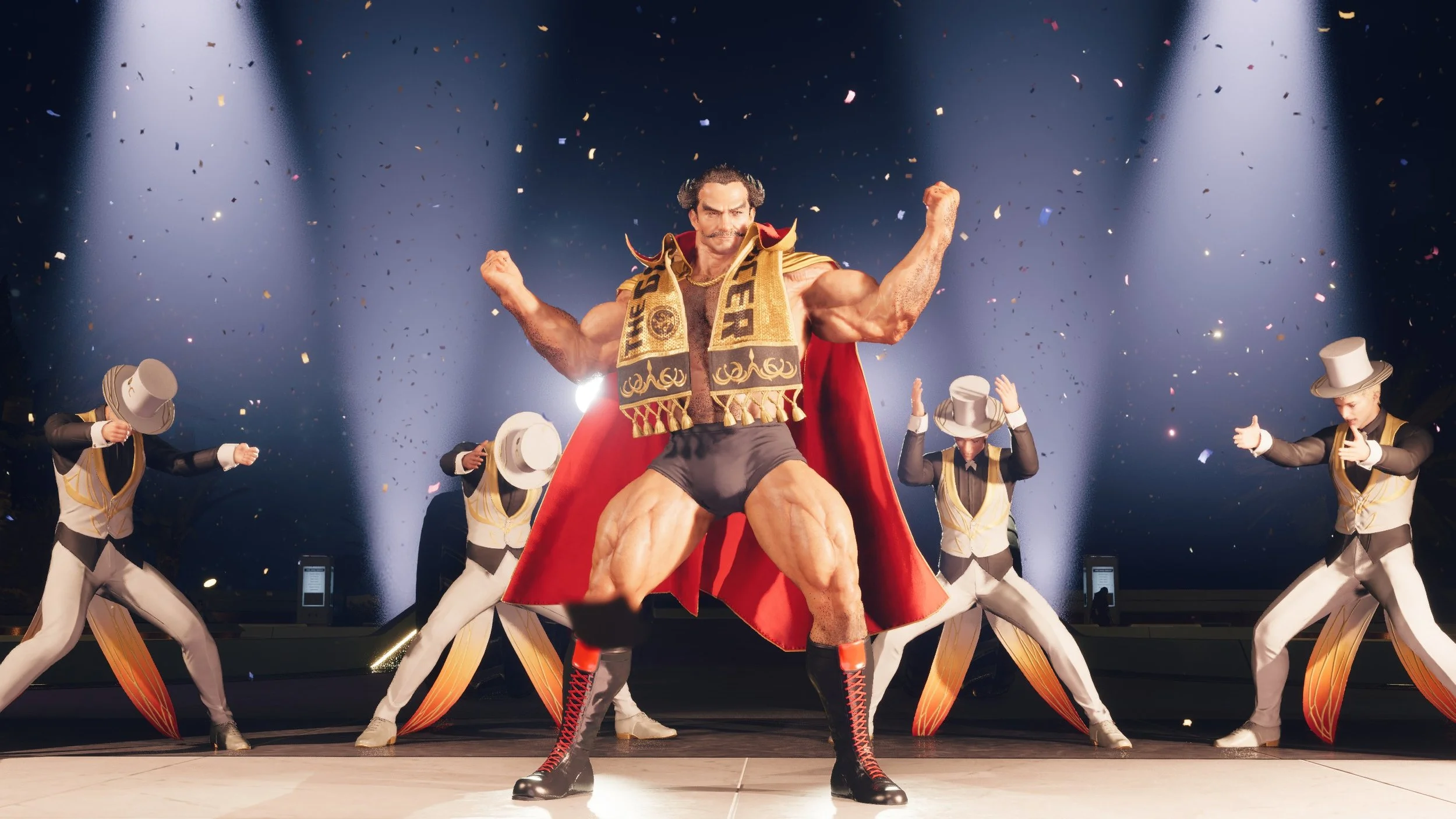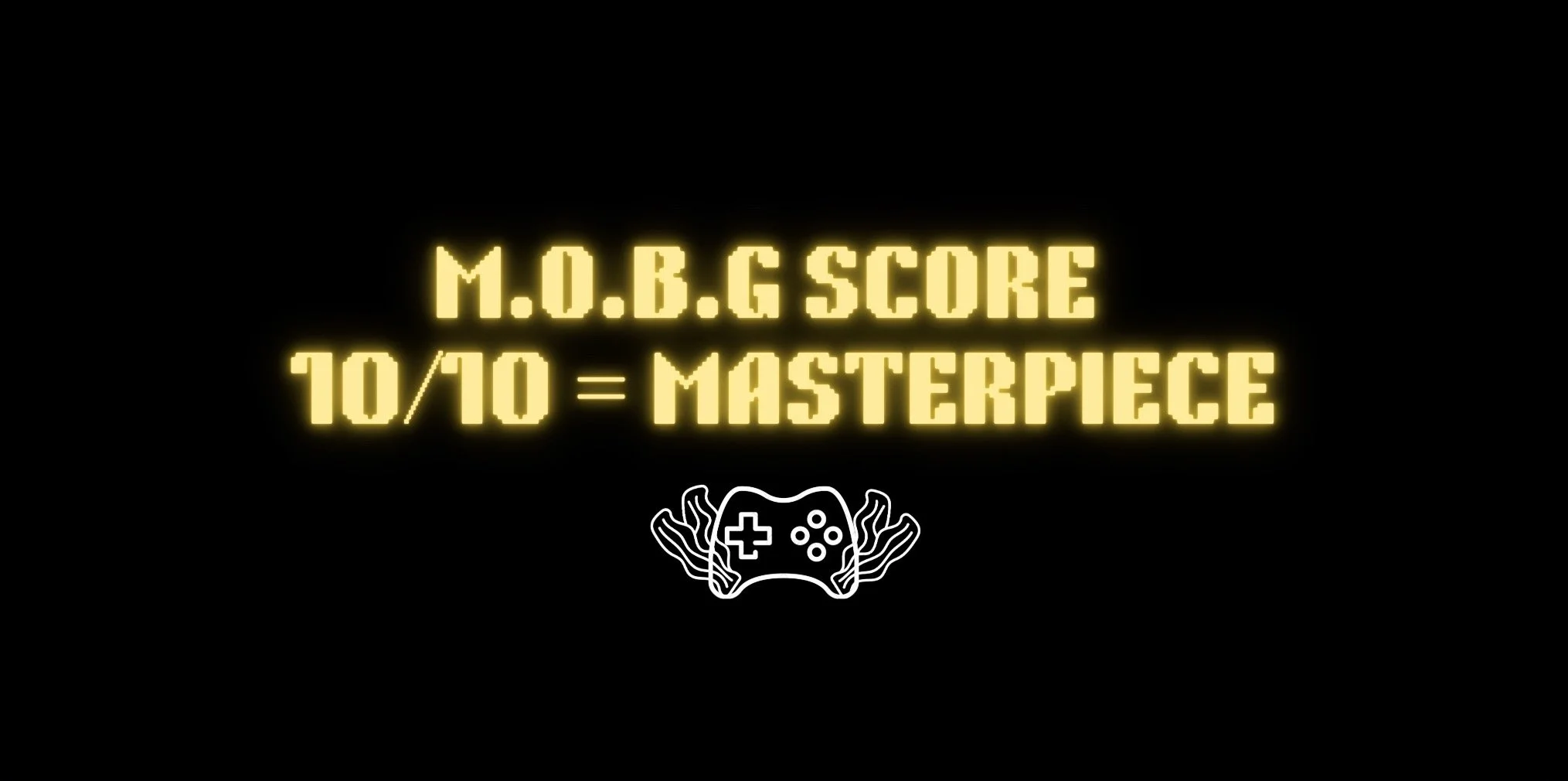The Six Reasons Why Final Fantasy VII: Rebirth Is My New All-Time Favorite Game
In 2001, my Grandma bought my brother and I a GameCube that came bundled with Sonic Adventure 2: Battle. With it being the first emotionally impactful game I had ever played, it would go on to become one of my all-time favorites. Nearly two decades later, that mantle was taken up by The Legend of Zelda: Breath of the Wild, whose revolutionary open- world design stoked an unrealized sense of wonder within me. Fast forward to 2024, I would play a game that would combine Breath of the Wild's powerfully unique sense of wonder with the shocking emotional impact I felt while playing Sonic Adventure 2 as a kid, and so much more. That game was Final Fantasy VII: Rebirth. It's an experience so relentlessly ambitious in every aspect of its design, that I still feel the full weight of its impact more than a year after I first rolled credits. It is by no means perfect, but even still, to call it special would be a serious understatement. Here are the 6 reasons why Final Fantasy VII: Rebirth is not only my favorite game of all-time, but why I feel it'll hold that spot for many years to come.
PLATFORMS: PS5 (315 HOURS) AND PC (60 HOURS)
1 - A Perfect Cast Of Characters
In any game, it's the characters that define the journey, and Final Fantasy VII: Rebirth's impressively dynamic cast of characters are the main reason why its journey is so unforgettable. Everything centers around Cloud, a cold shouldered no-nonsense ex-SOLDIER who's always on the straight and narrow. Throughout the story however, we see each of the cast of characters chip away at his seemingly impenetrable emotional shield with their own personality quirks through a wide range of deeply engaging character interactions. A few of these moments I enjoyed the most involved Yuffie, clashing her goofy, child-like energy with Cloud's ultra-serious demeanor, or watching as Tifa used her gentle yet durable resolve to help prevent Cloud from descending into madness.
As cool as he is, it's not all about Cloud, as I felt Square Enix did a great job showcasing the distinct personalities of the entire cast. I welcomed the return of Barrett's passionate brand of act first, ask questions later type of leadership that made me appreciate him so much in Remake. On the opposite side of the spectrum, Cait Sith's jolly Irish spirit came through like a breath of fresh air during some of the game's heaviest story moments. What's more, despite the wide spectrum of personalities present in the party, everyone still fits together like a puzzle, from the sister-like bond that Tifa and Aerith share, to the uneasy trust shared between Barrett and Red VIII and every combination in between. The result is my all-time favorite cast of characters -- a group whose interactions constantly had me on the edge of my seat, clamoring to see how they'd unfold.
2 - Unforgettable Character Moments
This section of the review contains mild story spoilers. If you'd like to experience the story without knowledge of specific key moments beforehand, I would recommend skipping to the following section
Having such a dynamic, well written cast of characters aided by gripping vocal performances and incredible facial capture creates the set up for unforgettable character moments, and Square Enix most certainly delivered. Rebirth is packed to the brim with them, such Cloud's interaction with Sephiroth during the Nibelheim flashback, and many more. However, there was one moment that tugged at my heart-strings a little deeper than the others managed to.
Through Remake and half of Rebirth, Barrett is shown to be a brash and brazen character with little else underneath. We do of course see his softer side come out in the presence of Marlene, but these moments are far and few in between and never quite feel emblematic of his actual character -- until we play through the Corel arc. This saga would reveal the dark truth of Barrett's past as well as the events that would chart the path toward who he would eventually become. He expresses a level of shame and regret which I felt lead to believe he wasn't capable of feeling, and would go on to fundamentally change how I viewed him as a character. However, the most powerful and perhaps defining moment of this saga comes during its conclusion, when in the depths of Barrett's emotional despair, we see Cloud break down his impenetrable walls to extend a helping hand to Barrett. It's a powerful moment between two characters who despite being of two wildly different emotional temperaments, find common ground in their struggle to let people in by being there for each other.
As if one universe wasn't big enough for the emotional impact of Rebirth's character moments, Square Enix conjures even more unforgettable character moments in its multiverse saga. Zack Fair is by far my favorite character in the FF7 universe owing to his powerful spirit that feels like a rare light in a world being covered by Sephiroth's darkness. To me, the dichotomy he shares with Cloud reminds me that of which Sonic shares with Shadow -- where one is grounded by his jaded outlook on the world, and the other is driven by a carefree nature that sees him soaring above the clouds (pun intended). The point is, I was happy to see Zack included in this ambitious remake as a consequential character. The journey he embarks on to take fate into his own hands is not only deeply emotional to witness, but feels like justice was being done to a character who I always felt deserved more. Though Zack's character moments only existed as part of a multiverse B plot designed to support the main story thread, I'm waiting with baited breath to see him be thrusted into the spotlight in Rebirth's follow-up.
3 - Pacing that Leverages Wacky Moments Against Heavier Themes
There were many occasions during my Rebirth play-through where I had to remind myself to "just go with it" -- a sentiment much more thoroughly understood by experiencing it in the game first-hand rather than reading about it in a review. So, why was I constantly telling myself to "just go with it"? Sure, Rebirth has many wacky and weird moments, for instance, pretty much anything involving Cait Sith and his jolly AI Moogle assistant. It's not so much the moments themselves that prompted the need for the constant recalibration of my emotions, rather, it was the way in which these moments were paced.
For example, when the party arrives in Barrett's hometown of Corel, he isn't exactly greeted with a warm welcome. This prompts Yuffie to plead with Barrett to explain why he is so unwelcome there. What follows is a flashback that reveals the dark truth of Barrett's past -- one that casts a somber mood among the group. This deeply emotional group moment is immediately followed by the over the top introduction of the Golden Saucer, which involves a 4-5 minute long musical dance number and a humorous match of 3D Brawler between Cloud and Dio. For me, the emotional impact of these two sequences smashed together can only be described as whiplash -- something that would go on to occur many times throughout the story. Taking the ability to sit with the impact of emotional story moments away from the player is a big risk, but one that ultimately paid off in Rebirth, as it forces you to appreciate those moments while they are right there in front of you rather than giving you time to reflect on them, deepening their impact as a result.
4 - My Favorite Combat System Of All-Time
My favorite sequels are the ones that take what worked in previous games and improves upon them in the next, and that's exactly what Rebirth does with its combat system. Remake's ATB cool down system is revamped and heavily expanded in Rebirth, as it hosts an exciting variety of additional special moves for each character. In fact, there are so many of these abilities that I often felt overwhelmed trying to decide what to use. Making their debut to the formula are Synergy Abilities, special moves performed by teams of two that are unique to the pairing using them. For example, Cloud's selection of Synergy Abilities that he can perform with Tifa are completely different from those that he can perform with Aerith, so on and so forth. With their being both normal and special variant of these moves, Synergy abilities add an unprecedented amount of depth -- resulting in a combat system boasting endless possibilities.
Rebirth did not rest when it came to its selection of weapons either, as each character sports a deep roster of them to use. As they did in Remake, each character's weapons are tailor made for their fighting style, like Barrett's selection of arm mounted machine guns, or Aerith's range of mage staffs. However, this selection has been expanded as well, with each character boasting a wide array of weapon types within their own selection of weapons ranging from those that focus on raw physical damage to others that deal enhanced magic damage. The robust amount of choices feels like running through a candy store, as unlocking each new thoughtfully designed weapon meant gaining access to game changing abilities. The expanded ATB system paired with the robust Synergy system and rich weapon and materia selection results in a combat experience that feels joyfully endless, one where Square Enix holds nothing back from the player so that they can craft their own combat experience.
5 - An Overwhelming (In A Good Way) Open World -- I 100%-ed It!
Since 100-percenting games has never been my thing, I told myself that I wouldn't go after every open world activity in Rebirth. However, after feeling the satisfaction of checking off every box in the Grasslands starting area, I got the itch to platinum the game entirely. If you've played an open-world game, you'll be familiar with Rebirth's design on the surface: towers, that when activated, unlock hidden portions of the map, NPC's in the wild waiting to offer you side-quests, etc. Yes, Rebirth certainly has all of these typical open-world trappings, but if you dig beyond the surface, you'll find that its formula is not only masterfully executed but incredibly unique as well.
For example, I could be on my way to unlock a tower, but while doing so, a crow may cross my path gently motioning me to follow it to something it wants to show me. While following the crow, I may happen upon an odd object in the open-world offering a side-quest that ends up taking me to crevices of the map I likely would have never discovered on my own. Oh, and those "side-quests" may also go on to span the entire game. The flow of the open world feels so natural, and similarly to Breath of the Wild, promotes an organic sense of exploration that I found myself losing 10s of hours to. That organic sense of exploration is bolstered by the fact that every open-zone is made up of its own unique terrain and layout, and as a result, requires a specific Chocobo with traversal abilities only applicable to that area -- a level of attention to detail that is impossible not to appreciate.
Each open-zone features a central town hub, which within them hosts a staggering amount of mini-games. Its not an exaggeration to say that at least 20 percent of my 315 hour play-through was lost to mini-games. That figure may seem ridiculous, but what's REALLY ridiculous is the fact that these are even referred to as mini-games given their relentless depth of design. A prime example is Queens Blood — a fully fleshed out strategy card game boasting a seemingly endless level of challengers throughout the world, an impressive amount of card packs to purchase, and a quest chain built around it that spans the entirety of the game. Others include Fort Condor, a full-fledged RTS game that ALSO sports its own quest-chain involving Barrett transforming into a power hungry commander whose evil plans you're tasked with foiling. Earning the platinum trophy for Rebirth was the most difficult thing I've ever achieved in gaming, but conquering these mini-games as a part of that process was an absolute blast and one I won't soon forget.
6 - A Powerful and Thoughtfully Implemented Score
When it comes to picking the games I want to play, I like to make sure my roster is as diverse as possible. I find a lot of joy in experiencing the many different ways in which music can be implemented across many different types of games. With that said, Final Fantasy VII: Rebirth not only has some of the most powerful music I've ever had the pleasure of listening to, but it also has among the most thoughtful score implementations of any game I've ever played.
For example, I'm a huge sucker for hard rock mixed with orchestral elements. So needless to say my jaw hit the floor during phase two of the Midgardsormr battle when the iconic FF7 battle theme transitioned into a heavy metal orchestra. The first time I heard the double kick pedal drums and beefy distorted guitar firing on all cylinders with the orchestral track, I felt chills in my hands as I gripped my controller bracing for phase two of the fight. It was an emblematic moment of how the score would continue to impact me throughout the rest of my play-through. Each track, regardless of whether or not it was complimenting the tenderness of an emotional scene or the heart pumping heights of a boss battle, gave each moment a powerful identity that felt distinctly "Final Fantasy VII: Rebirth".
In addition to having some of the most emotionally moving music I've ever heard in a game, how that music is implemented takes the experience to even greater heights. One moment that stands out to me, and one that perhaps sets the quality bar for the rest of the game happens during the Nibelheim prologue chapter. The beginning of this saga sees Cloud, Tifa, and Sephiroth travel together up Mt. Nibel toward the town's reactor. The beginning of their ascent up the mountain is accompanied by a track that begins with soft, pensive piano. As you make your way through the entrance valley, the strings begin to layer on top of the piano, illustrating that your footsteps are leading towards something bigger. As you round the bend of the valley to the breathtakingly beautiful opening of the mountain, the full orchestra chimes in with a theme that feels like it's saying "Here it is, welcome to your new journey". It conjures the unique sense of excitement that one feels at the start of a grand adventure, something that felt like a warm hug to the start of the game.
The Verdict
Final Fantasy VII: Rebirth is defined by its relentlessly ambitious design. That ambition will either land with you, making the grind towards its endless amusement park of features feel like an exciting experience, or it won't, likely because that amusement park of features may just feel like too much to swallow. It not only landed with me, but it resonated with me on a profoundly deep level, and it was only through earning the platinum and completing everything in the game that I was able to appreciate the full weight of Square Enix's design ambition. I don't throw the term "greatest game of all-time" around lightly, as it's a title that I've only ever given to two other games. However, when it becomes the game that I think about a year after rolling credits, the game whose design elements represent the gold standard in which I now judge all other games against, it becomes an undeniable choice for that title. For these reasons and many more that I didn't get to in this post (because quite frankly the list is never-ending), Final Fantasy VII: Rebirth is not only my favorite game of all-time, but will be that game for a long-time to come. Can the follow-up take that title?








